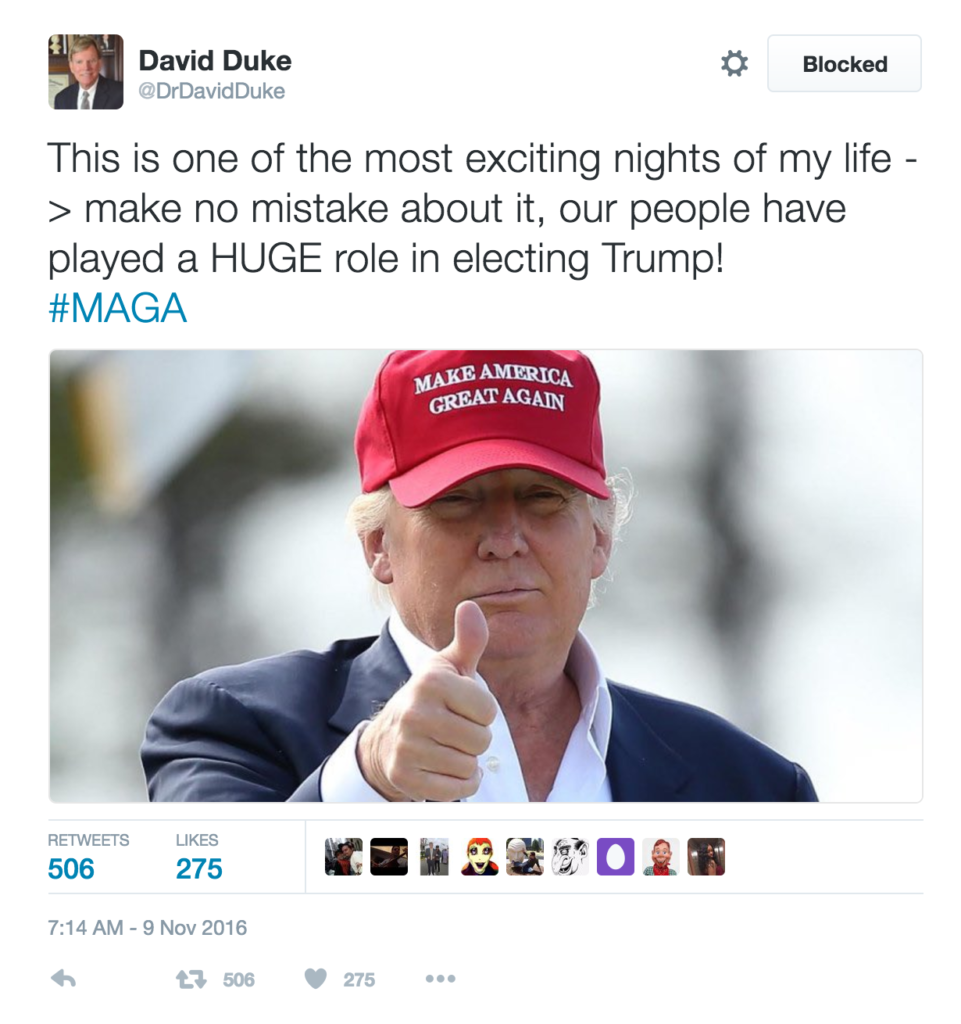good night, and thank you.
culture
who had nothing to do with it
Quote
Fascist Nations
Shortly after the war of 1914-1918 the first fascist nations
emerged in Europe In those nations
the sun rose and set at the usual time shedding light
on homestead roofs and hills' green slopes Cattle
mooed gently in cowsheds Mothers kissed
their children's foreheads to wake them at dawn
Fathers returning from work
with cheerful weariness in their bones smelled
the smoke from their hearths and after dinner
fell asleep in armchairs or tinkered intrepidly or
practiced their music with a passion Children
played at stickball at hopscotch and hide-and-seek Little girls
sprouted breasts and overnight
little girls turned into big girls filled with whisper
and murmur like trees in the woods and sudden giggles
the sound of which
made boys' throats go dry On summer evenings
curtains lit from within showed shadows meeting
parting and meeting again tenderly Whereas in winter
lovers inhaled the steam of each other's breath in snowy gardens And
one might also mention cats arching their backs sparrows
soaring up above the pavement old women on their porches
flowers cut and potted nurses
taking patients' temperatures people sweeping streets
with brooms One might mention drying
wood wind in a thicket damp furrows in a field And one might also
call to mind many particulars bearing Witness that
For there were no signs on the sky mournful comets
burning bushes water turned to blood For
life went on as always Hence there truly were in those nations
many ordinary people and good people and people
who knew nothing and to whom
it never occurred and who
didn't consider themselves accessories and who
had nothing to do with it and who didn't
even read the papers or read them carelessly caught up
in thoughts of what they had to get done
fix the leaking roof get the shoes
repaired propose have
a beer mix the paint light a candle and who
really didn't see the fear in a neighbor's eyes didn't
hear the trembling in travelers' voices asking the way didn't
see the difference didn't hear
an inner voice or if
they had their doubts there was nothing they could do
and they took comfort
saying At least we
aren't doing anything wrong we live the way we always did
Which was true
And yet these were
fascist nations
– Wiktor Woroszylski, “Fascist nations”, 1969, translated by Stanisław Barańczak and Clare Cavanagh
the president
Imageshit just got real
Image
an opportunistic predator nominated
StatusYet another small opportunistic predator has been nominated to a highly visible position in Theresa May’s cabinet.
Prime Minister’s press secretary announced today that Larry (last name, age, nationality and marital status unknown) has been confirmed as the Chief Mouser to the Cabinet Office.
It is yet unknown which public school should be thanked for his education, but we’ve been reliably informed that Larry shares with his other cabinet colleagues the usual traits of ruthlessness, murderous psychopathy, volatile moods and fondness for tortures.
Unlike them, as we’ve been told by a minor official asking to be left anonymous, Larry is an otherwise adorable furry creature that does not harm humans.
(routers, shmouters)
…but the american civil war wasn’t about slavery, right?
AsideThe Declaration of Causes of Seceding States
from civilwar.org, quoted without comments
Georgia
The people of Georgia having dissolved their political connection with the Government of the United States of America, present to their confederates and the world the causes which have led to the separation. For the last ten years we have had numerous and serious causes of complaint against our non-slave-holding confederate States with reference to the subject of African slavery. They have endeavored to weaken our security, to disturb our domestic peace and tranquility, and persistently refused to comply with their express constitutional obligations to us in reference to that property, and by the use of their power in the Federal Government have striven to deprive us of an equal enjoyment of the common Territories of the Republic. This hostile policy of our confederates has been pursued with every circumstance of aggravation which could arouse the passions and excite the hatred of our people, and has placed the two sections of the Union for many years past in the condition of virtual civil war. Our people, still attached to the Union from habit and national traditions, and averse to change, hoped that time, reason, and argument would bring, if not redress, at least exemption from further insults, injuries, and dangers. Recent events have fully dissipated all such hopes and demonstrated the necessity of separation.
Our Northern confederates, after a full and calm hearing of all the facts, after a fair warning of our purpose not to submit to the rule of the authors of all these wrongs and injuries, have by a large majority committed the Government of the United States into their hands. The people of Georgia, after an equally full and fair and deliberate hearing of the case, have declared with equal firmness that they shall not rule over them. A brief history of the rise, progress, and policy of anti-slavery and the political organization into whose hands the administration of the Federal Government has been committed will fully justify the pronounced verdict of the people of Georgia. The party of Lincoln, called the Republican party, under its present name and organization, is of recent origin. It is admitted to be an anti-slavery party. While it attracts to itself by its creed the scattered advocates of exploded political heresies, of condemned theories in political economy, the advocates of commercial restrictions, of protection, of special privileges, of waste and corruption in the administration of Government, anti-slavery is its mission and its purpose. By anti-slavery it is made a power in the state. The question of slavery was the great difficulty in the way of the formation of the Constitution.
While the subordination and the political and social inequality of the African race was fully conceded by all, it was plainly apparent that slavery would soon disappear from what are now the non-slave-holding States of the original thirteen. The opposition to slavery was then, as now, general in those States and the Constitution was made with direct reference to that fact. But a distinct abolition party was not formed in the United States for more than half a century after the Government went into operation. The main reason was that the North, even if united, could not control both branches of the Legislature during any portion of that time. Therefore such an organization must have resulted either in utter failure or in the total overthrow of the Government. The material prosperity of the North was greatly dependent on the Federal Government; that of the South not at all. In the first years of the Republic the navigating, commercial, and manufacturing interests of the North began to seek profit and aggrandizement at the expense of the agricultural interests. Even the owners of fishing smacks sought and obtained bounties for pursuing their own business (which yet continue), and $500,000 is now paid them annually out of the Treasury. The navigating interests begged for protection against foreign shipbuilders and against competition in the coasting trade.
Reading Rothbard
AsideNow if a parent may own his child (within the framework of non-aggression and runaway-freedom), then he may also transfer that ownership to someone else. He may give the child out for adoption, or he may sell the rights to the child in a voluntary contract. In short, we must face the fact that the purely free society will have a flourishing free market in children. Superficially, this sounds monstrous and inhuman. But closer thought will reveal the superior humanism of such a market. For we must realize that there is a market for children now, but that since the government prohibits sale of children at a price, the parents may now only give their children away to a licensed adoption agency free of charge. This means that we now indeed have a child-market, but that the government enforces a maximum price control of zero, and restricts the market to a few privileged and therefore monopolistic agencies. The result has been a typical market where the price of the commodity is held by government far below the free-market price: an enormous “shortage” of the good. The demand for babies and children is usually far greater than the supply, and hence we see daily tragedies of adults denied the joys of adopting children by prying and tyrannical adoption agencies. In fact, we find a large unsatisfied demand by adults and couples for children, along with a large number of surplus and unwanted babies neglected or maltreated by their parents. Allowing a free market in children would eliminate this imbalance, and would allow for an allocation of babies and children away from parents who dislike or do not care for their children, and toward foster parents who deeply desire such children. Everyone involved: the natural parents, the children, and the foster parents purchasing the children, would be better off in this sort of society
(From: Murray Rothbard, “Ethics of Liberty”, chapter fourteen: children and rights)
lost in translation
AsideUKIP should have a motto. How about “Ourselves Alone”?
— Gary Farrell

